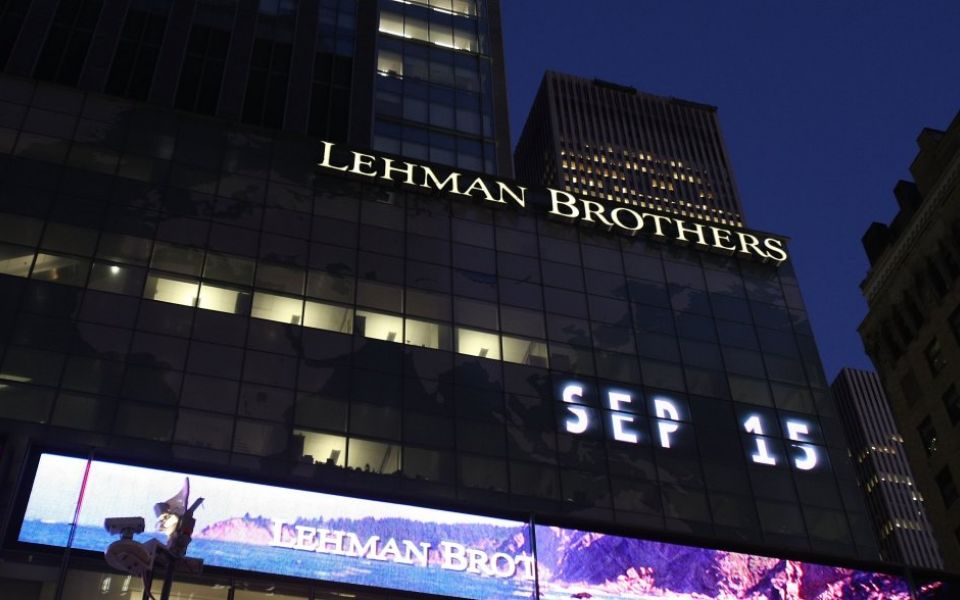We’ve all learnt from the collapse of Lehman Brothers, but complacency isn’t an option

As wenear the 10 year anniversary of the Lehman administration this weekend, there has been a vast amount of commentary looking back.
At this huge milestone, it’s certainly worth taking a moment to remind ourselves of how far we’ve come.
If I take myself back to that Sunday, when the prospect of Lehman Brothers going down was rapidly becoming the only option, it still seems surreal.
Read more: A decade on, hubris is the lesson to learn from the Lehman tragedy
On Monday morning, our lawyers walked into the Bank Street offices of Lehman Brothers in Canary Wharf with the task of starting the administration of this huge bank – something that had never been done before (and I hope will never need to be done again).
The size, challenge and complexity were unprecedented.
When we first arrived, no one knew what to expect. One of the immediate problems was that the administrators simply didn’t know where the assets or relevant information were.
As with all modern financial institutions, the assets comprised contracts, mostly investments and claims on other players in the financial markets. They weren’t locked in a vault, they existed in computer records, which needed to be located and understood.
There was no blueprint or instruction manual for a bank like this going into administration. We had to work closely with the administrators to piece together information very quickly and create a plan that would inject some clarity and stability into a panicked market. That was no easy feat.
Lehman Brothers also demonstrated the intricate interconnectedness of the market. As we started to map out the contagion risks, hour by hour, the spider-web nature of this immensely complex ecosystem became clearer.
The full extent of the complexity had not been appreciated by the authorities or market participants before the crisis. While most people knew parts of the market really well, very few had a grasp of the entire ecosystem. That was a huge learning point.
Following the collapse, the authorities knew that they had to try to ensure nothing of this scale happened again. And in the aftermath of the financial crisis, there has been a huge international reaction, a tsunami of finance regulation – from mandatory clearing, to the EU’s banking union directives, to capital requirements, accounting rule changes and living wills.
One could debate whether all this change has been for the best. The authorities took an understandable approach in favour of over-regulation in areas of uncertainty, reflecting the fact that some of the regulation was brought in quickly, with little time for coordination or proper consideration for the practical application.
However, it’s fair to say that some overlapping and impractical regulation has proven particularly difficult for players in multiple markets and jurisdictions, and some rules have imposed costs of compliance beyond the benefits they bring.
So where do we go from here? The focus is now on making the new regulation work without stifling markets or creating barriers to innovation.
Will we then end up with an unbreakable system where we’ll never see another administration like Lehman’s? It’s hard to feel confident. Markets are forever evolving, and addressing particular risks often moves systemic risk elsewhere in the same system.
There is no crystal ball to tell us where the next crisis will spring up. The current focus is on addressing the complexity of the largest financial institutions and the interconnectedness of financial market infrastructures. New technology is also creating incredible opportunities for cost savings and simplification, but regulation is having to run to catch up.
As always, it’s a delicate balance of keeping a stable system while still allowing for parts of the sector to experiment and innovate. Today, we have the solutions for yesterday’s problems and our best guess for tomorrow’s.
Our system should handle another Lehman. The question is whether we are ready for what might come next. The regulators and authorities are acutely aware of this, and are keeping a close eye on risks and constantly scanning the market for potential issues.
Read more: Lehman Brothers 10 years on